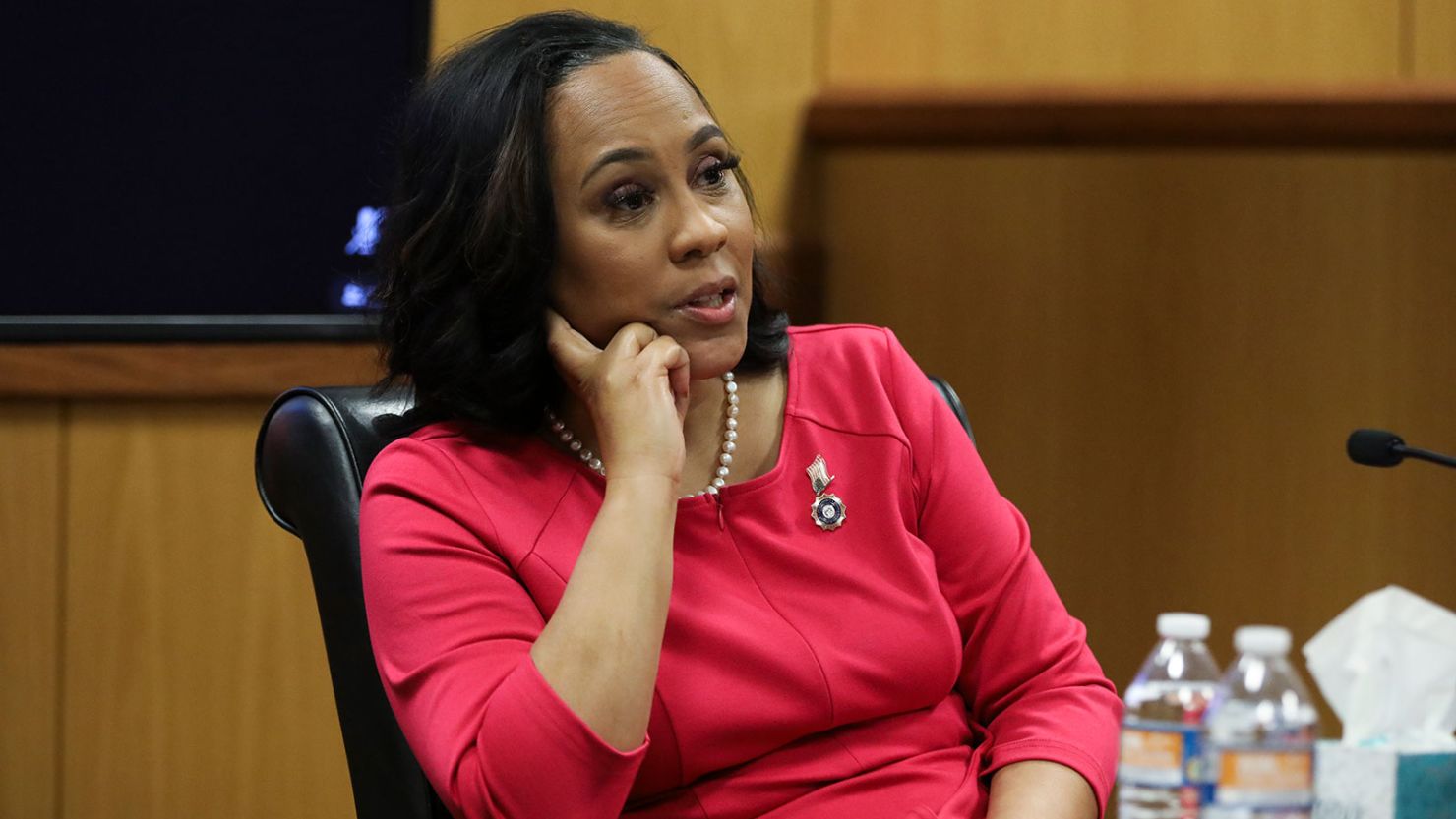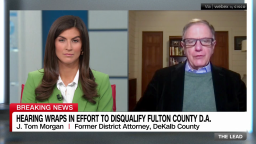Defense attorneys in the sprawling Georgia election subversion and racketeering case against Donald Trump and allies are asking a judge to allow additional evidence in their efforts to disqualify Fulton County District Attorney Fani Willis and her office from prosecuting the case.
Judge Scott McAfee said he expects to rule on whether to remove Willis’ office from the case within two weeks after hearing from a range of witnesses over three days of testimony in the past month.
But now, defense attorneys say the judge should consider hearing from two more potential witnesses who claim they could testify to what Terrence Bradley told them about when his former law partner and client, Nathan Wade, started a romantic relationship with Willis. The timeline of the Willis-Wade relationship has been a sticking point in the disqualification hearings.
Bradley, who represented Wade in his divorce, was billed as a “star witness” in the effort to derail Willis and her case but did not provide clear details under oath about the start of the relationship, saying he did not recall at several key moments.
After his testimony, Cindi Lee Yeager, a deputy district attorney from a neighboring county in Georgia, reached out to defense attorneys representing one of Trump’s co-defendants to say she had watched Bradley on the stand and that he had previously told her a different story in person, according to a court filing from the defense attorneys.
According to the filing, Yeager said Bradley told her that Wade and Willis met at a legal conference in 2019 and their romantic relationship began around that time. Both Willis and Wade have testified their personal relationship didn’t begin until 2022 – after Willis hired him to lead the Trump case.
Yeager declined to comment to CNN when asked about the court filing.
In a court hearing last Friday, McAfee indicated he was not interested in formally reopening evidence-gathering. McAfee said he is “sorting out” various legal issues and “factual determinations” after the hearings and legal filings, and that he hoped to have a decision on Willis’ fate by March 15.
Georgia lawyer Manny Arora, who represented Trump-alligned attorney Kenneth Chesebro also could testify that Bradley told him the relationship began when Willis was running for district attorney from 2019 to 2020, according to a separate court filing.
Chesebro, who helped orchestrate the Trump campaign’s 2020 fake electors plot, has pleaded guilty in the Georgia case. Trump and the remaining co-defendants have pleaded not guilty.
Asked about the court filing in the Willis matter, Arora told CNN: “If a subpoena is issued, I’ll testify.”
CNN reached out to Bradley and the Fulton County district attorney’s office for comment.
If allowed to testify, these additional witnesses could echo what Bradley told defense attorney Ashleigh Merchant in text messages prior to taking the stand – that the relationship “absolutely” started before Wade’s hiring. But any information they would have still appears to be second-hand from their own conversations with Bradley.
Defense attorneys have alleged that Willis’s office should not be allowed to stay on the prosecution because of a conflict of interest arising from her hiring Wade and then benefitting financially from vacations and dinners he paid for with money earned on the case.
Also Tuesday, lawyers representing Willis argued in a new court filing that Trump and his his co-defendants have failed to prove that an actual conflict of interest exists.
“The Court should not disqualify the Fulton County District Attorney’s Office from prosecution of this matter where the evidence before the Court fails to demonstrate an actual conflict of interest or forensic misconduct on the part of the District Attorney by a ‘high standard of proof,’” lawyers for the DA’s office wrote.
“To whatever extent the Defendants allege that the District Attorney received a benefit arising out of this prosecution, they have made no allegation – and have offered no evidence—that the District Attorney has any improper, direct, and material personal stake or interest in the outcome of these proceedings sufficient to authorize disqualification,” they added.
This story has been updated with additional developments.







